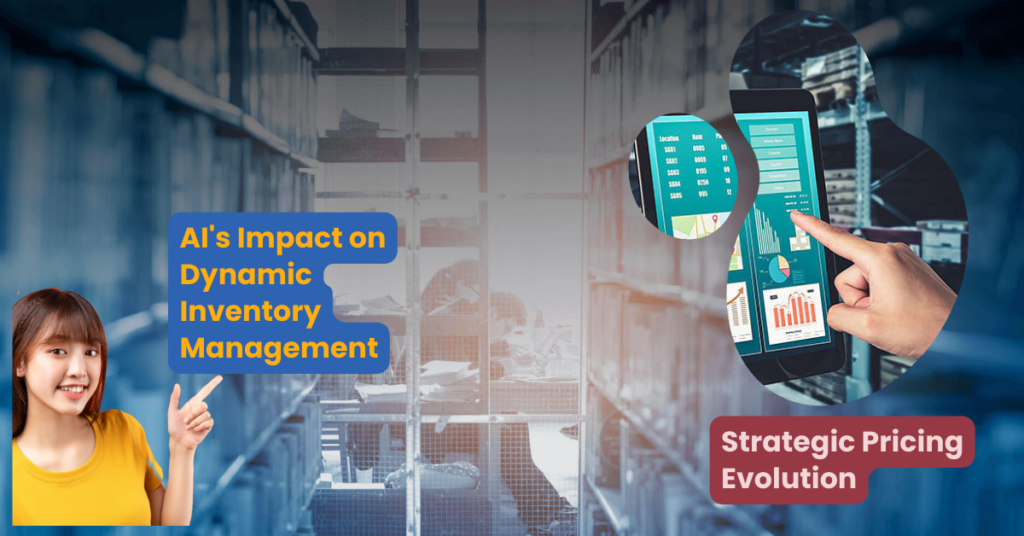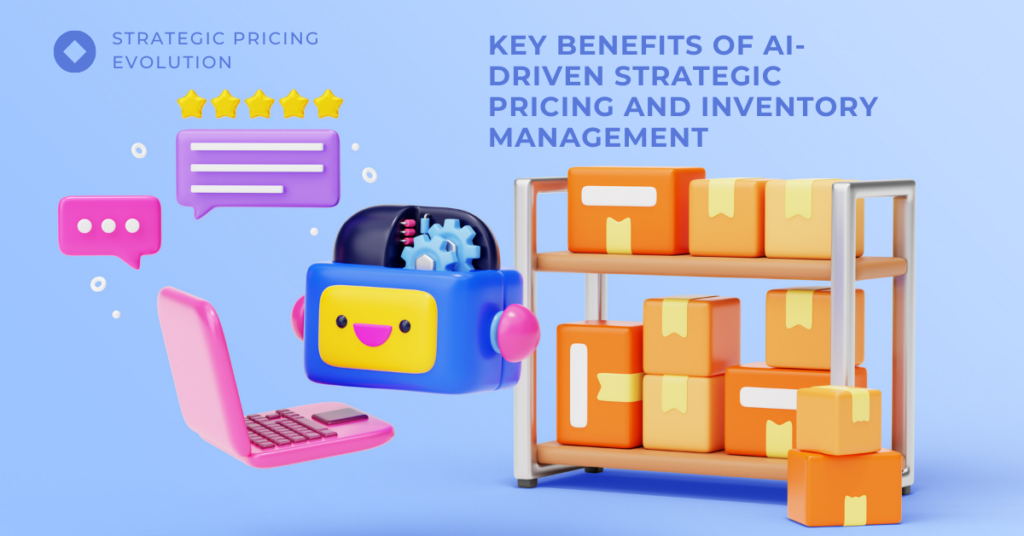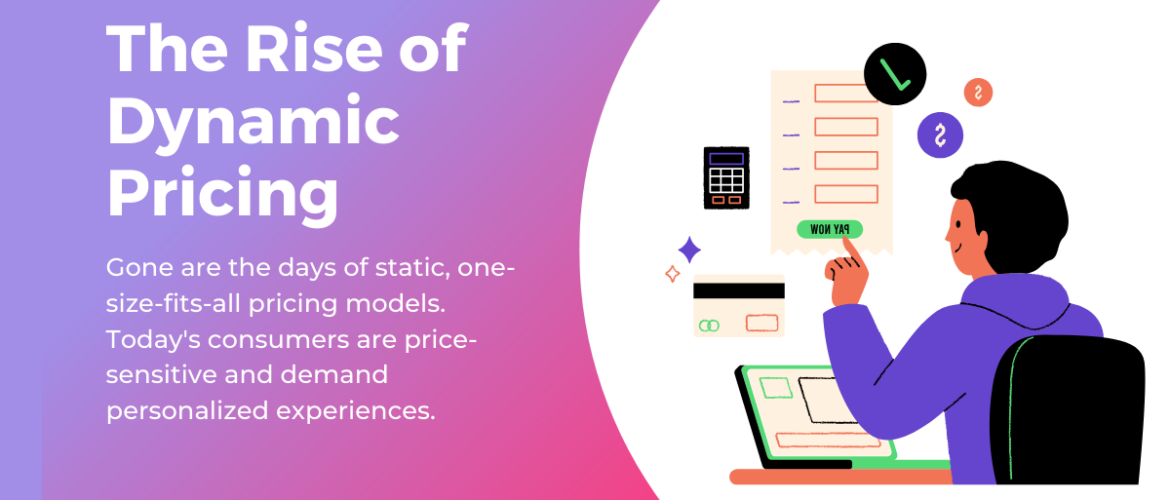Strategic Pricing Evolution: AI’s Impact on Dynamic Inventory Management
In the dynamic and data-driven world of today’s business, the way we price and manage inventory is undergoing a revolution. Artificial intelligence (AI) is emerging as a game-changer, empowering companies to adopt strategic pricing approaches that seamlessly integrate with dynamic inventory management. This blog delves into this transformative trend, exploring how AI is redefining pricing strategies and optimizing inventory levels for maximum profitability.

Strategic Pricing Evolution: The Rise of Dynamic Pricing:
Gone are the days of static, one-size-fits-all pricing models. Today’s consumers are price-sensitive and demand personalized experiences. AI-powered dynamic pricing algorithms analyze vast datasets, including market trends, competitor pricing, customer behavior, and real-time demand fluctuations. This data is used to adjust prices dynamically, ensuring businesses capture optimal revenue while remaining competitive.
Strategic Pricing Evolution: AI’s Impact on Inventory Management:
Inventory management plays a crucial role in supporting dynamic pricing strategies. Excess stock leads to high holding costs and dead stock, while stockouts can damage customer relationships and lost sales. AI steps in by analyzing historical sales data, forecasting future demand, and optimizing inventory levels for each product. This ensures the right products are available at the right time, minimizing costs and maximizing profitability.
Strategic Pricing Evolution: Key Benefits of AI-driven Strategic Pricing and Inventory Management:
- Increased Revenue: Dynamic pricing strategies powered by AI can lead to revenue increases of up to 22%, according to the AI Profit Maximization Report.
- Reduced Costs: AI-optimized inventory management can decrease excess inventory by up to 30%, minimizing holding costs and preventing stockouts.
- Improved Customer Experience: Personalized pricing based on customer segments can enhance customer satisfaction and loyalty.
- Enhanced Competitiveness: Real-time price adjustments based on market trends help businesses stay ahead of the competition.
- Data-Driven Decision Making: AI provides valuable insights and forecasts, enabling businesses to make informed pricing and inventory decisions based on concrete data.
Strategic Pricing Evolution: Examples of AI in Action:
- Airlines: AI dynamically adjusts ticket prices based on demand, time to departure, and competitor offerings, maximizing revenue while filling seats.
- Retailers: AI personalizes pricing for individual customers based on their purchase history and preferences, driving targeted promotions and increasing sales.
- Manufacturers: AI forecasts demand for raw materials and finished goods, optimizing inventory levels and production schedules to minimize costs and ensure timely delivery.

Strategic Pricing Evolution: The Future of Strategic Pricing and Inventory Management:
As AI technology continues to evolve, its impact on strategic pricing and inventory management will deepen. We can expect even more sophisticated algorithms, richer data integration, and the ability to personalize pricing and inventory strategies at an even more granular level. This will undoubtedly lead to further optimization, increased profitability, and a more dynamic and responsive business landscape.
Strategic Pricing Evolution: In Conclusion:
AI is not just transforming industries; it’s fundamentally changing how businesses approach pricing and inventory management. By embracing AI-driven solutions, companies can unlock significant benefits, gain a competitive edge, and deliver a superior customer experience in today’s data-centric world.
Transaction Alertness: 3 best things for AI’s Role in Preventing Annual Fraud Losses.





Leave A Comment